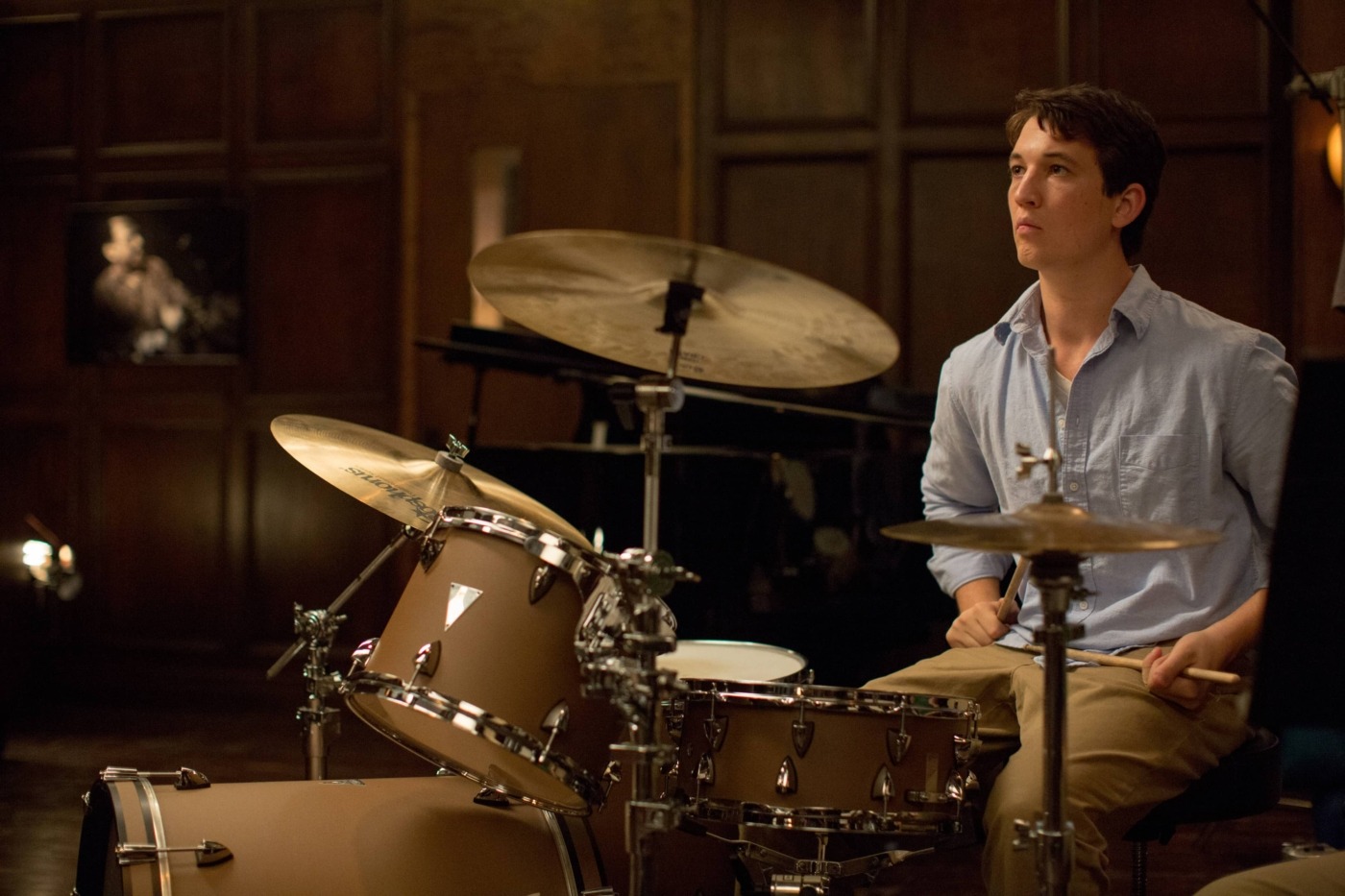Last Night I Watched: ‘Whiplash’
The best cinema encompasses nearly all of the senses. While I’ve no desire to smell what’s on screen to attain the optimum cinematic experience, I want to see beautiful images that take me to another world (which, by the way, is more than possible without 3D). I want to hear the clearest sounds with the best audio quality possible.
It is these traits that have informed the cinema of director Damien Chazelle. The first film of his that I watched was La La Land (2016), a movie that celebrates clarity of sound, well rounded yet flawed characters and beautiful, picturesque landscapes in equal measure. Despite the unforgettable error made at the Oscars over the Best Picture winner, it was a film that deservedly won Chazelle the Best Director trophy, making him the youngest ever recipient of that award.
It was clear that the brilliance of La La Land had been informed by Chazelle’s earlier feature, Whiplash (2014). The film is about the idea of the outsider trying to break into the system. Their aim is not only to become an insider but to be the best. Whiplash explores this through the story of Andrew Neiman (Miles Teller), who is an ambitious, driven drummer at the fictitious Shaffer Conservatory in New York.
Now, my knowledge of drumming, or indeed most music, is fairly minimal. I have a huge amount of admiration and respect for people that can play musical instruments and read music precisely because it is a talent that I (currently) lack. Cinema of the highest quality should have the ability to appeal to individuals regardless of whether they are personally connected or initially interested with the topics at hand.
Where Whiplash shines is its exploration of universal topics
Where Whiplash shines is its exploration of universal topics. The question of who has power is a discussion that has plagued societies since the beginning of humanity. In modern day New York, the question is no different. As an outsider, Neiman’s social power to break into the music world is lacking. He is therefore reliant on teachers at his Conservatory alongside his own drive and motivation to succeed.
The debate over how far individuals should be pushed to achieve beyond what could ever be expected of them is fine and sensitive. As a director, Chazelle handles this perfectly. Neiman is given a chance within Shaffer’s reputable Studio Band, which is under the conductorship of Terence Fletcher (J. K. Simmons). It is here where things get interesting. Fletcher believes he has a duty not only to conduct, but to create the jazz musician who will be talked about with their records played long after they have passed away, at any cost.
For any individual to have entered Shaffer, supposedly the best music conservatory in the country, they have to have a degree of self-confidence and talent. That is not enough for Fletcher. Throughout the course of Whiplash, J. K. Simmons masterfully plays an individual obsessed with perfection and intolerant of imperfection. Play out of time and a chair will be thrown at you. Slightly miss a note and every insult under the sun will be hurled your way.
And yet, Neiman and others at Shaffer are desperate to enter (and remain) in this band. Why? Because Fletcher has a reputation as someone who can give people opportunities and ensure that they have some form of career in the music industry. What Whiplash becomes, to some extent, is a game of cat and mouse. Neiman v Fletcher. Who can outdo the other and ultimately triumph? The greatest films are about far more than their original subject matter. Whiplash is about far more than drumming.
It is a film about loss. Andrew Neiman clearly feels the absence of his mother, who abandoned him at a young age. Paul Reiser superbly plays Jim Neiman, Andrew’s empathetic and sympathetic father, someone who always wants the best for his son. Chazelle brilliantly creates a character who feels the need to prove himself and be the best, even when it comes at the cost of personal relationships and family respect. In one superb shot, a bucket of ice used for Andrew’s hands, when they have been damaged by drumming, turns from white to red. Fletcher has turned Andrew into a machine, someone who, at times, even lacks humanity.
At times I laughed, felt deeply uncomfortable and was occasionally utterly horrified
That being said, the use of emotion, particularly among men, is striking and consistent. Aspiring musicians become upset when repeatedly dragged down by Fletcher’s criticism, including Andrew. Upon learning some personal information, Fletcher himself becomes emotional. This is admirable to witness and represents the level of physical, mental, and emotional exhaustion that can be part of music. The experience is similar to my viewing experience: at times I laughed, felt deeply uncomfortable, and was occasionally utterly horrified.
Whiplash is a film full of layers and complexity. Just when you expect one event to have been resolved, another is just around the corner. Films about someone aspiring to achieve greatness can easily feel generic, but the complexity of the characters, the repeated use of exciting twists and the sheer tension sustained throughout the 100 minutes ensures that Whiplash never falls into that trap. As a drummer, Andrew Neiman wants to be remembered for centuries. Whiplash is a piece of cinema that meets that criteria.

Comments